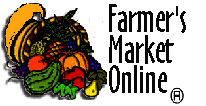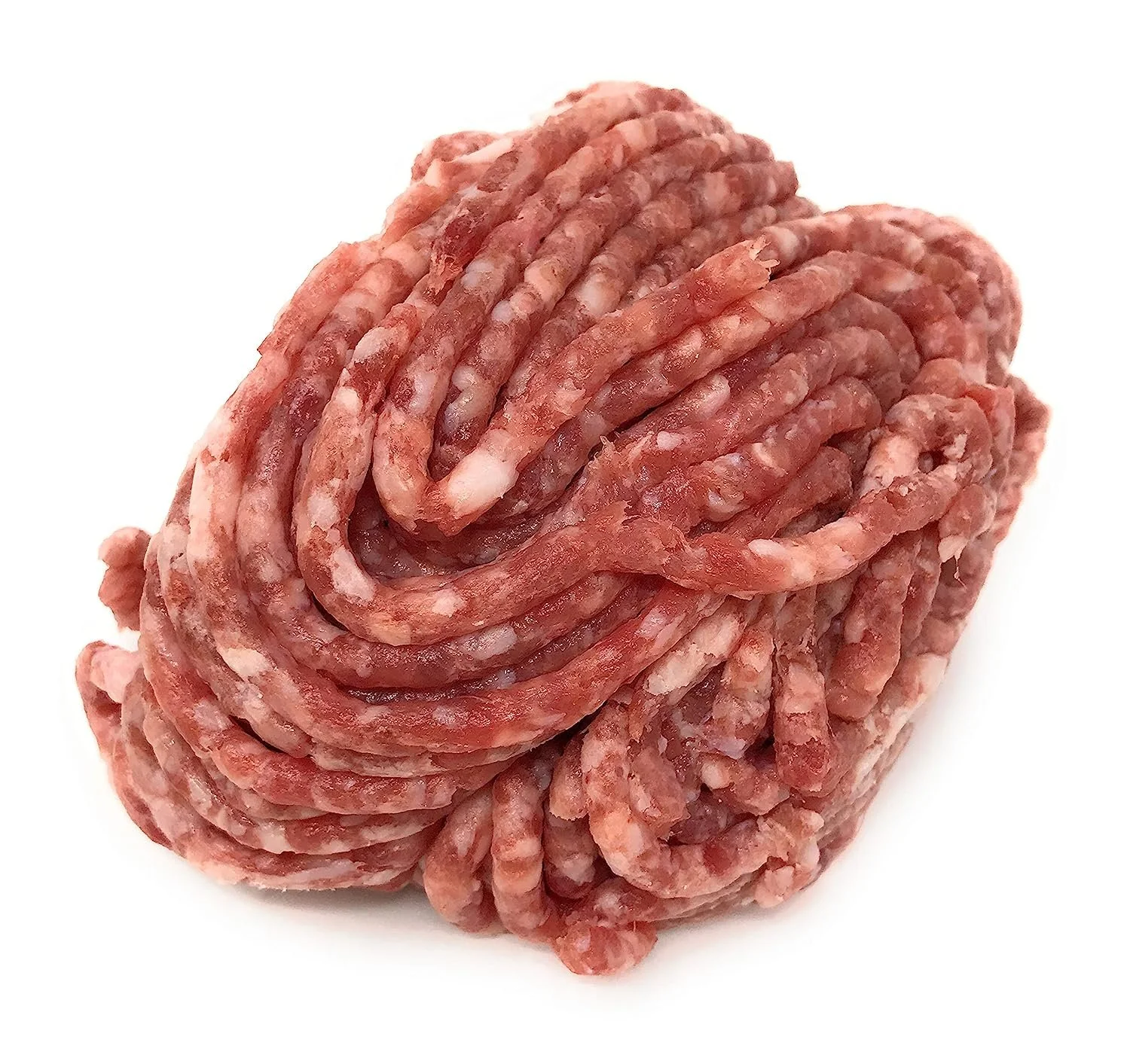Farm Direct Tip Sheet
A GROWING DEMAND FOR GOAT MEAT A boom in demand and an economic need to diversify has many farmers looking to produce goat meat. Goat meat production is increasing thanks to the influx of people from Hispanic and Caribbean countries and those of Muslim faith.
SMALL FARM DIRECT MARKETING Direct marketing refers to selling that is based on a personal, one-to-one relationship that ties farmers and consumers together. Many times this relationship is face-to-face, like at farmers' markets. Other times, the consumer and farmer may not actually meet, for example, Internet sales.
DIRECT MARKETING MEAT The first step to selling meat products to neighbors or in a public market is to find a processor that is a state inspected facility. Ohio extension educator Rory Lewandowski points out that many custom red meat plants have facilities and equipment approved for slaughter and processing but do not have a regular inspection program. Livestock may be slaughtered and processed into meat products at these plants for the owner of the livestock, but those products must be identified by stamping all product packages with the wording "Not For Sale."
FLOWERS, COUNTRY-STYLE. Lynn Ivey, the owner of Ivey's Country Store in Macon, Georgia, grows pretty near everything he sells in his nursery, from bedding plants and roses to ornamental shrubs and perennials. He offers free advice, based on his 40 years of horticultural experience, to any customer that asks, even a month after the original purchase.
SETTING PRICES. The price of a product can make the difference between success and failure. Good prices make customers think they are getting their money's worth and make you think you are getting a fair return on your investment of time and money.
CULTIVAR WALNUTS OFFER INCOME POTENTIAL Growing black walnut trees that have been grafted to improved cultivars have potential for excellent production and financial return. Some farmers grow the walnuts on their land, pick and sell them for extra money, but there is a potential to do much more using grafted trees.
MANAGING TIMBERLAND AS AN INVESTMENT If you're a savvy investor, you know your financial portfolio should include a retirement plan, some stocks, some bonds, a money market fund -- and that timberland you inherited from your grandfather 20 years ago. Timberland as an investment? Absolutely. Timber is a commodity, and it needs to be treated like any other investment a landowner manages.
RAISING REINDEER The 80 reindeer in Ferney's pasture are among the first to be raised domestically in Idaho and are part of a small but growing reindeer industry across the U.S. Many are raised for meat, others for their antlers, and some for commercial rentals during the Christmas season.
HARVESTING NATURE’S WILD BLOSSOMS One of the most unusual harvests in Idaho begins in early May on the northern fringes of the Snake River Plain. A crew of a half dozen workers gathers in freshly blooming stands of chokecherry, equipped with pruning shears and long-sleeved shirts, to begin trimming off slender limbs lined with finely toothed oblong leaves.
RAISING MEAT GOATS Increased market opportunities have led many folks to consider raising meat goats, but many are unfamiliar with modern production techniques. And because the interest in meat goat production is new, there are few experienced goat producers in most areas to help newcomers in their desire to learn as much as possible. In addition, importation of new breeds has stimulated a breeding industry which needs herds to produce purebred breeding stock as well as animals for exhibition.
TARGETED GRAZING WITH SHEEP AND GOATS
Goats and sheep have a reputation for eating vegetation that most other grazing animals would not touch. The practice of using sheep and goats to clear out unwanted brush is called targeted grazing, and many government agencies, municipalities and private landowners are using it to keep vacant lots, steep back yards, parks and right-of-ways clear of brush. Farm Direct Tip Sheet
HOMEMADE FOR SALE
This is an authoritative guide to conceiving and launching your own home-based food start-up. Packed with profiles of successful cottage food entrepreneurs, this comprehensive and accessible resource covers everything you need to get cooking for your customers, creating items that by their very nature are specialized and unique. No capital needed, just good recipes, enthusiasm, and commitment, plus enough know-how to turn fresh ingredients into sought-after treats for your local community. Homemade for Sale
FARM DIRECT BISON
At Owl Creek Farm near Frankfort, Ohio, rancher Greg Ruter raises bison and sells the meat at Chillicothe Farmers Market and other markets in the Cincinnati area where he finds eager customers for his grass-fed product. Starting in 2011with 430 acreas an a few bison from Colorado and Indiana, Ruter now has 64 head and plans to expand to 80 by September. In addition to the bison, Ruter and his wife grow and market garlic, apples, peaches and cherries. [chillicothegazette]
SMALL-PLOT INTENSIVE FARMING
After farming conventionally for nearly 20 years, Wally Satzewich realized that by downsizing his operation to less than an acre he could generate the same income as a large-scale farmer, but with less stress and overhead, and with more certainty of success from year-to-year. Along with his wife and business partner Gail Vandersteen, he operates Wally's Urban Market Garden, a multi-locational sub-acre urban and periurban farm dispersed over multiple residential backyard plots leased from homeowners in and around Saskatoon, Saskatchewan Canada. The sites range in size from 500 sq. ft. to 3,000 sq. ft., and the growing area totals a half acre. The produce is sold at The Saskatoon Farmers Market and to restaurants. In his SPIN-Farming books, Satzewich details his non-technical, easy-to-understand and inexpensive to implement farming system. SPIN-Farming
FARMERS MARKET ON A BUS At Change.org, Katherine Gustafson reports on how Mark Lilly, founder and owner of Farm to Family, operates a mobile farmers market in a tricked-out school bus packed with "fresh fruits, vegetables, meats, dairy, baked goods and a few pet rabbits."
The produce is gathered from Lilly's own garden as well as those of family members, friends and farmers with whom he is trying to build relationships. His marketing route is limited to the Richmond, Virginia, area but varies from day to day. He posts his location for potential shoppers hour-to-hour info on his Facebook page and Twitter feed and responds to special requests for stops.
A BETTER DEAL
According to Bill McKibben’s Deep Economy: The Wealth of Communities and the Durable Future, farmers selling produce at farmers markets around the country get 100% of the money spent on food compared to 10% earned though the typical wholesale-retail industrialized food system. (Lease a Booth at Farmer's Market Online; no commissions, no sales reports.)
HOME DELIVERY, DIRECT FROM THE FARM
Home delivery of produce direct from the farm is a growing trend in Michigan, according to a report in The Detroit News. "Many Michigan farmers who deliver say they've seen a significant increase in home delivery customers during the past few years," Jennifer Youssef reports. "And consumers say they like the delivery services because they want farm-fresh food but can't always get what they're looking for at the grocery store." Youssef profiles home delivery services by Avalon Farms in Climax, Michigan, and To Your Door Delivery in Niles. Home delivery works best in rural areas with high-income residents willing to pay a premium for the service, according to grocery analyst David Livingston, but middle- and lower-income consumers nmay be a harder sell and urban locations will be difficult to reach.
FLOWERS COUNTRY-STYLE, BACKED BY THE GROWERBuying direct from the grower means knowing who to turn to if you have a problem. And being successful at farm-direct sales of any product involves being reliable, responsible and available to the customer. Lynn Ivey, the owner of Ivey's Country Store in Macon, Georgia, grows pretty near everything he sells in his nursery, from bedding plants and roses to ornamental shrubs and perennials.
He offers free advice, based on his 40 years of horticultural experience, to any customer that asks, even a month after the original purchase. Farm Direct Profile
GROWING A HOME BUSINESS WITH HERBS
Phyllis Shaudys of Bucks County, Pennsylvania, turned her hobby of making herbal sachets from dried home-grown herbs and flowers into a full-time business, Herbal Acres. In a profile of her enterprise in Mother Earth News she explained: "I had always made potpourris and sachets to give as gifts, but it had never occurred to me to go into business." Shaudys sold small pillows filled with fragrant herbs, packages of potpourri, and herbal wreaths.
THE BEST MARKET
Some one has said that the great difficulty with farmers is that they sell at wholesale and buy at retail; and this difficulty is nowhere better shown than in the fruit business. The less fruit you can sell a customer, at one time, the more he is willing to pay for it. Did you ever stop to think of that? Traditional Orcharding
Farm Direct











